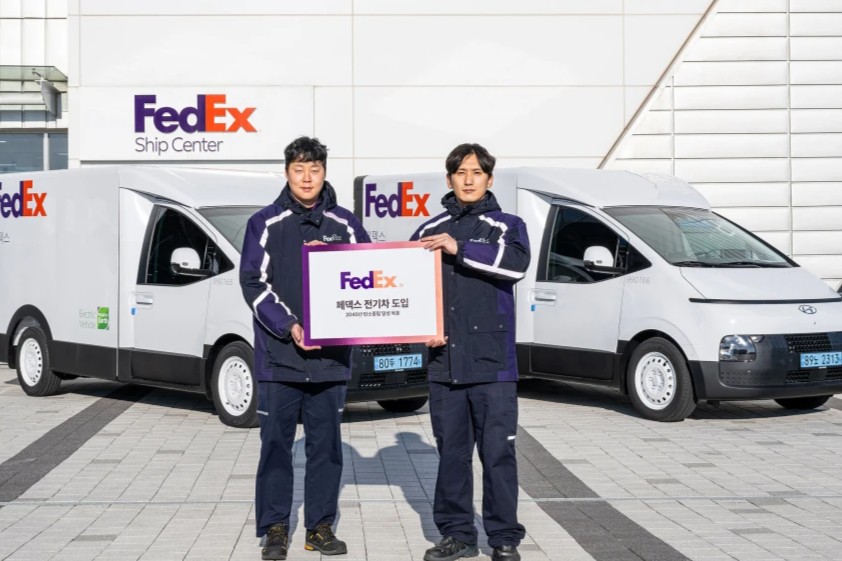FedEx adds first EVs to South Korean fleet
The electric transporters offer up to 317 kilometres of range on one charge and a load capacity of about one tonne. According to FedEx, each vehicle can save about seven metric tonnes of CO2 per year compared to a diesel equivalent.
FedEx wants to achieve carbon-neutral operations on a global scale by 2040. At the same time, it aims for carbon neutrality in South Korea by 2050, so ten years later, as the company specifies in its press release. However, it is looking to reduce CO2 emissions there by 40 per cent by 2030 (compared to 2018).
“We are excited to be taking this significant step forward in our commitment to sustainability,” said Wonbin Park, managing director of FedEx Korea. “This initiative is especially critical given the continued growth of e-commerce, which demands more sustainable last-mile deliveries. These new electric vehicles will help reduce emissions and is part of our efforts to provide customers with reliable, efficient, and environmentally responsible delivery options.”
In other countries, FedEx is already a lot closer to its goal. For example, it recently replaced 31 diesel vans with all-electric custom-built Mercedes panel vans in Singapore, saying that it would only purchase EVs for operations there from 2030 onwards. It also keeps growing its electric fleet in the US and recently ordered 33 eSprinters for operations in Spain.





0 Comments